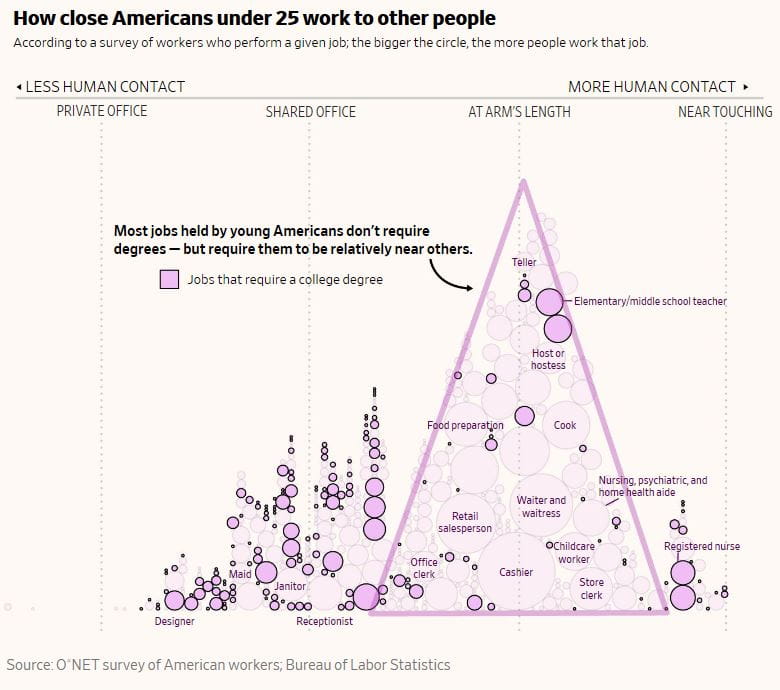#1. UK Prime Minister promises ‘every young person’ the ‘chance of an apprenticeship or an in-work placement’
As part of his “new deal” plan designed to kick-start the UK economy and invest £5 billion in infrastructure projects following COVID-19, Boris Johnson promised earlier this week to offer an “opportunity guarantee” that will provide every young person with an apprenticeship or in-work placement. As reported by FE Week, however, the details of how this policy would work or how much it would cost is yet to be specified. Next week, the country’s finance minister Rishi Sunak is expected to provide an update on the government’s proposed economic recovery plan.

#2. Millennials and Gen-Zs hold the key to creating a “better normal”
Despite the challenges posed by coronavirus, the economic crisis and mass protests, young generations are looking on the bright side of life. That’s according to this year’s Deloitte Global Millennial Survey. The report finds a growing appreciation of remote work among both millennials and Gen Z workers, with more than 60% saying they’d like the option to continue working remotely more frequently. More flexibility at work would help them with stress relief and work-life balance. While job loyalty reached high levels at the end of 2019, it remains to be seen how pandemic-driven job losses will affect loyalty in the coming months.

#3. How virtual co-working can boost employee productivity
Working in the office and being surrounded by colleagues can boost your productivity. But with remote work becoming more and more prevalent, has this in-office style of work been lost for good? And more importantly, can it be replaced? It seems that it can! Enter virtual co-working, where employees work alongside each other digitally. Forbes’ Ashira Prossack explains that virtual co-working is not about talking to each other online. Instead, “everyone on the call commits to dedicating the entire time to working”. For this to work, two rules must be observed: first, video for all participants is mandatory. And second, it’s best to keep people unmuted. “Just like white noise in a coffee shop can help people be more productive, the sound of hearing someone typing along can also be a motivator and productivity booster,” Prossack adds.

#4. Five ways to advance digital trade in the post-COVID world
While the physical movement of goods and people has been largely restricted due to the pandemic, cross-border e-commerce, digital payments as well as teleconferencing with business partners have become a necessity. But digital trade in services faces significant challenges. The growing gap in digital development, concerns about data privacy and cybersecurity all put barriers on trade and lead to digital protectionism. To overcome these challenges, we should consider these five steps:
- Advance forward-looking trade agreements
- Promote greater interoperability
- Digitize trade documentation
- Close the digital divide
- Build trusted technologies for all

#5. Under 25 and employed? Physical distancing might not be an option at work
While many office-based workers have been able to work remotely these past months, for others, COVID-19 has made it painfully obvious that their jobs don’t allow for social distancing. In fact, one in three Americans have jobs that demand close proximity to others, such as carers, hairdressers, and cashiers. And not all age groups are hit equally. Among American workers under 25, only half have jobs that allow for social distance – compared with two-thirds of older workers. That’s because most young people are employed in industries such as leisure and hospitality where close proximity to customers is required. Read more in this Wall Street Journal article.




